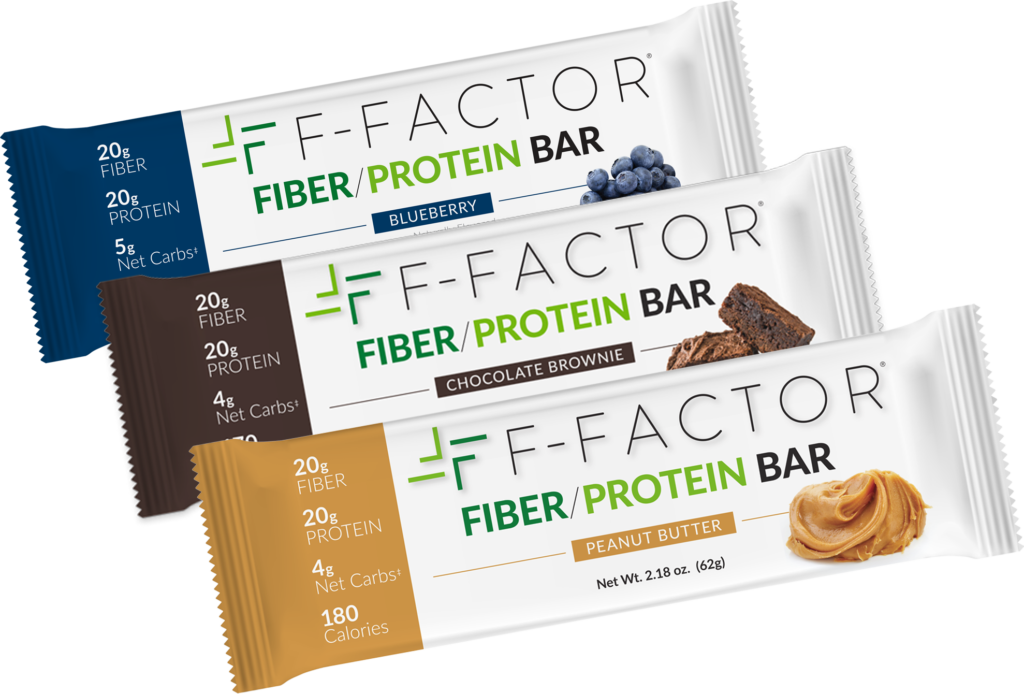7 Reasons You Should Eat A Snack Every Single Day
 It may seem counterintuitive, but if sustainable weight loss or management is your goal, skipping meals won’t get you very far. Many people mistakenly believe that by skipping meals, they will save on calories, and lose more weight—and the two meals people often skip first are breakfast and snack. However, skipping meals may inhibit weight loss and even lead to weight gain over time. We know breakfast is the most important meal of the day (there’s a reason that’s such colloquial adage after all), but the often-overlooked afternoon meal, “snack” is a necessary part of the equation too. In fact, that light meal between lunch and dinner, is actually key to sustained, successful weight management, and skipping it can trip you up and do more harm than good.
It may seem counterintuitive, but if sustainable weight loss or management is your goal, skipping meals won’t get you very far. Many people mistakenly believe that by skipping meals, they will save on calories, and lose more weight—and the two meals people often skip first are breakfast and snack. However, skipping meals may inhibit weight loss and even lead to weight gain over time. We know breakfast is the most important meal of the day (there’s a reason that’s such colloquial adage after all), but the often-overlooked afternoon meal, “snack” is a necessary part of the equation too. In fact, that light meal between lunch and dinner, is actually key to sustained, successful weight management, and skipping it can trip you up and do more harm than good.
Here’s why you definitely don’t want to skip your daily snack:
(1) SKIPPING MEALS (YES, SNACK IS A MEAL) SLOWS METABOLISM.
When your body is deprived of food for many hours between meals, your body thinks it’s fasting and starts conserving fuel and burning fewer calories to protect itself from starving. While this was a protective mechanism for our less food secure ancestors, the result today doesn’t suit us the same way it did our ancestors. Your metabolism slows down, therefore inhibiting weight loss efforts despite reduced caloric intake. By including snack between lunch and dinner you keep your metabolism burning efficiently.
(2) GOING TOO LONG WITHOUT EATING CAUSES BLOOD SUGAR LEVELS TO DROP.
Low blood sugar can produce sudden hunger pangs, which can trigger bingeing and food cravings; two things that are not consistent with weight loss efforts. Healthy blood sugar levels begin to drop within two hours of eating, which is why successful F-Factor Dieters aim to eat 4 small meals a day: breakfast (no later than an hour after rising), lunch, snack, and dinner at 4-5 hour intervals.
PRO TIP: It’s never good to be caught hungry and forced to rely on vending machine options as your only source for sustenance. Instead, plan ahead and bring healthy, portable snacks like an F-Factor Fiber/Protein Bar with you to keep in your bag, desk, or car so you never have to reach for refined carbs.
(3) FEELING HUNGRY ISN’T FUN… AND THAT CAN TAINT YOUR OUTLOOK ON DIETING.
Simple as that. In addition to the embarrassing noises a rumbling stomach makes, the physiological symptoms of hunger includes dizziness, faintness or light-headedness, headache, irritability/ easily agitated, lack of concentration, and nausea. If you eat lunch at 12:00pm and you don’t sit down for dinner until 7:00, you have gone seven hours without eating. You won’t die from starvation, but you may experience varying degrees of at least one of the aforementioned symptoms.
As anyone who’s ever felt hunger can attest, these symptoms are not fun, no one enjoys them. But outside of the instantaneous feelings of discomfort, this can be problematic because it can negatively impact your perceptions about weight management. Experiencing such hunger pangs can add to any negative connotations you may have about dieting or making lifestyle changes, and that can make future weight loss efforts more dreadful and daunting of a task to take on. Have a snack between lunch and dinner though, and the potential for such a situation is completely minimized, if not avoided all together.
(4) SNACK HELPS US STAY IN CONTROL.
Another thing feeling hungry impacts: our willpower. When we’re “starving,” our willpower over what we choose to eat is sorely diminished. Our healthy blood sugar levels drop low and our bodies goes into this emergency state of sorts, which drives us to overeat when food finally appears. The thing is, it’s not always a measure of willpower when it comes to inhaling meals; our basic physiology is involved. When we are hungry, a hormone called ghrelin is released in our brain indicating that we are hungry, and this same hormone can drive us to choose fatty and sugary foods.
When people go into a meal hungry, their defenses are often down, and they become less likely to make decisions that honor their health and weight goals. What do you do when you arrive starving and see a bread basket in front of you? It’s hard not to dive right into that, isn’t it? When you’re that hungry, you may not be able to think as clearly, thus less likely to make mindful choices. Filling up on a sensible afternoon snack will prevent you from showing up ravenous, helping you to make thoughtful decisions to help you look and feel your best.
(5) SNACK HELPS OFFSET HUNGER AT DINNER.
One of the reasons snack is so often skipped is because people want to save their calories for dinner; they don’t want to spoil their appetite. This is a flawed way to go about it though, as it can easily backfire and actually cause you to overeat at dinner. The thing is, dinner is the problem in and of itself. Not only is it the worst meal to overeat at, but it’s the worst time of day to overeat too. Dinner is often the most caloric meal of the day; it’s when people tend to eat the heaviest, because typical dinner foods are heavier. Dinner is also often a more leisurely, relaxed meal, which encourages eating, and overeating. Moreover, the time you eat dinner—at night, before bed—isn’t the most ideal time for such consumption. This is because at night you are less active and therefore less likely to burn the calories consumed. Instead, it’s best to eat most of your calories before dinner, when you are more likely to burn them off through activity. Spoiling your appetite for dinner by having an afternoon snack that combines fiber and protein will help keep your dinner light and lean, and help prevent you from excess snacking after dinner too.
(6) IT’S AN OPPORTUNITY TO MEET YOU DAILY FIBER NEEDS.
Your goal is a minimum of 35g of fiber per day. Since dinner on F-Factor is protein and veggies, and intended to be the lightest meal of the day, snack is the perfect opportunity to make major strides to hit (or surpass) that daily fiber goal. Of course, hitting a quantifiable fiber benchmark isn’t just about glory. A good snack is roughly 200-250 calories, and consist of both fiber and protein—at least 5g of each. Fiber and protein are the two nutrients that fill us up on the fewest amounts of calories. The fuller you feel after a meal, the less likely you’ll be to overeat at the next meal; and, thus, the more likely you’ll be to lose weight. Hey, if you’re full enough from your afternoon snack, you might not even need such a large dinner—and if you’ve met you’re goal of at least 35g of fiber for the day, that’s okay!
(7) SNACK CAN ENHANCE AN AFTERNOON WORKOUT.
An afternoon snack can also aid weight loss by providing you with energy for your after-work exercise session. If you attempt to work out on an empty stomach, you may feel too fatigued and skip the workout altogether. Anyone who’s ever attempted a post-work workout knows, it can be all too easy to justify skipping the gym to begin with. But an afternoon snack can do wonders here. A few hours after eating lunch, your blood sugars begin to come down, causing you to feel hungry and need a pick-me-up to get through the rest of the day. Eating a sensible snack will supply you with needed fuel to hit the gym and get on with your day effectively.
THE MORAL OF THE STORY:
By eating breakfast, lunch, a snack, and dinner, you are guaranteed to feel full, have energy, and keep your metabolism working efficiently. Then, honoring your intentions to achieve your health and weight goals becomes a much more manageable feat. You can do it; one meal at a time!
